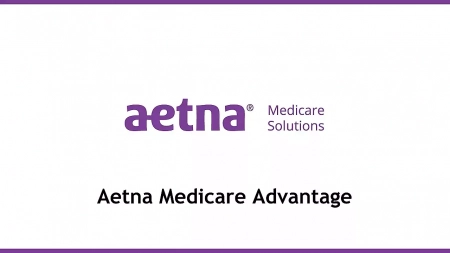Aetna Medicare Advantage – Benefits of Aetna Medicare Advantage
Aetna Medicare Advantage offers a selection of health plans designed with Medicare beneficiaries in mind, along with extra features to make things easier and more convenient.
In addition to the basic plans, supplementary benefits include a concierge service that helps customers locate resources nearby. Aetna is the fourth-biggest provider of Medicare Advantage plans.
People eligible for Medicare can receive assistance with personal expenses, such as food, using Extended Special Needs Plans (SNPs).
Aetna provides employer-sponsored, individual, and family health, dental, vision, supplementary, Medicaid, and pharmacy insurance plans and Medicare Advantage programs.
What is Aetna Medicare Advantage?
Aetna is a provider of health insurance based in Connecticut. It is authorized by Medicare to provide Medicare Advantage (Part C) plans. These plans offered by Aetna are designed to meet various financial and medical needs.
It is crucial to remember that each plan’s availability differs by state, county, and even ZIP code. Aetna was founded in Hartford, Connecticut, in 1853, and made history in 1966 when it processed the first Medicare claim.
Following that, it expanded its product line in the 1970s and 1980s by launching PPO and Health Maintenance Organization (HMO) plans. Notably, in 2018, CVS Health acquired Aetna, enhancing its position as a provider of healthcare benefits.
At the moment, they serve about 399 million people. The Centers for Medicare and Medicaid Services gave Aetna an outstanding 4.3 out of 5.0 stars for their Medicare Advantage Prescription Drug (MAPD) plans.

Types of Aetna Medicare Advantage
Aetna offers four types of Medicare Advantage plans with various choices to meet each individual’s needs and preferences. These consist of:
- Health Maintenance Organization (HMO): Choosing an in-network primary care physician (PCP) is required for most Aetna HMO plans. A recommendation from your preferred PCP is usually required to receive hospital or specialty treatment, guaranteeing a coordinated and network-aligned response to your medical requirements.
- Health Maintenance Organization Point of Service (HMO-POS): With a few notable exceptions, HMO-POS plans often demand referrals to specialists, in-network care, and an in-network primary care physician (PCP). Remember that visiting someone who is not in your network usually costs more.
- Preferred Provider Organization (PPO): Although selecting out-of-network healthcare providers may result in greater fees, these plans typically allow flexibility for them. PPO plans aim to eliminate the requirement for referrals or a primary care physician (PCP) while obtaining hospital or specialty treatment.
- Dual-eligible Special Needs Plan: D-SNP intends to provide extra assistance, such as a specialized care team, to people who qualify for both Medicare and Medicaid. It usually helps with scheduling doctor’s appointments, creating a care plan with your physician, and answering questions about different parts of your plan, like prescription information.
Every plan is designed to provide Medicare recipients with unique benefits and flexibility.
Benefits of Aetna Medicare Advantage
Aetna Medicare Advantage plans generally include a wide array of benefits. They include:
- Dental, vision, and hearing benefits.
- Over-the-counter benefits.
- Total health benefits.
- Meals at home program.
- Fitness benefit.
- Resources for the living program.
Listed above are some of the benefits.
Pros of Aetna Medicare Advantage
The perks include:
- Affordable choice
- Robust advantages
- Positive comments on member satisfaction.
- Entire coverage, including benefits for vision, hearing, and dentistry
- Additional benefits like meal delivery services, over-the-counter allowances, and at-home medical consultations
- Predominantly economical, with about 84% of Medicare beneficiaries qualified for a zero-premium Aetna plan
These are some of the perks.
Cons of Aetna Medicare Advantage
According to the recent J.D. Power poll, Aetna’s customer satisfaction scores fell short of the industry average in certain significant Medicare markets.
How to Apply for Aetna Medicare Advantage
To apply online, follow these guidelines:
- Check if you are eligible for Medicare Advantage plans. Generally, you must reside in the plan’s service area and be registered in Medicare Parts A and B.
- Visit their official website at https://www.aetnamedicare.com to learn more about Aetna’s Medicare Advantage plans.
- To choose which plan best suits your coverage, cost, and provider network needs, compare various options such as HMO, PPO, etc.
- Review the specifics, such as premiums, deductibles, copays, and any other benefits each plan may provide (such as vision, dental, vision, and hearing programs).
- If you are eligible, you can enroll during the Special Enrollment Period (SEP), Annual Election Period (AEP), or Initial Enrollment Period (IEP).
- After selecting a plan, ensure all the information on your application is accurate.
- After enrollment, Aetna will send you a confirmation, a membership package containing your plan card, and a comprehensive usage guide.
Plans are subject to annual modification, so make sure your plan still fits your needs by reviewing it annually during the AEP.
Frequently Asked Questions
Below are some frequently asked questions.
What Is the Cost of Aetna Medicare Advantage?
The costs of an Aetna Medicare Advantage plan vary according to your county of residence and your health needs. It is also crucial to remember that, under the majority of plans, you must continue to pay $164.90 monthly for the Medicare Part B premium.
What is Covered by Medicare Advantage?
All of your Part A and Part B benefits, as well as any additional benefits resulting from new legislation or Medicare policy decisions, are provided by Medicare Advantage Plans. Plans are required to pay for nearly all medically necessary treatments that Original Medicare covers and all emergency and urgent care (both mental and physical).
What Drawbacks Come with a Medicare Advantage Plan?
In most circumstances, you are still required to pay the Medicare Plan B premium and the expenses of an Aetna Medicare Advantage plan.
Conclusion
Medicare Advantage plans offered by Aetna include HMO, HMO-POS, and PPO options. These plans are available throughout the country, although customers should confirm if their desired plan is available where they are.
